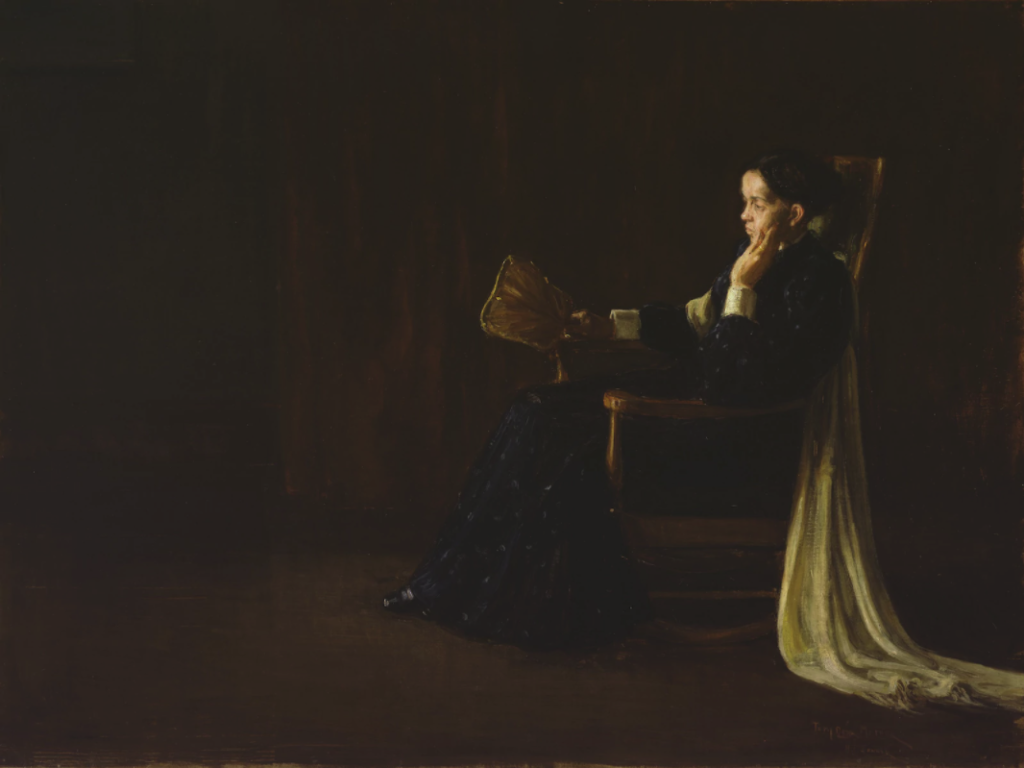Motherhood
By Georgia Douglas Johnson
Annotations by Rene Marzuk

Don’t knock on my door, little child,[1] I cannot let you in; You know not what a world this is, Of cruelty and sin. Wait in the still eternity Until I come to you. The world is cruel, cruel, child, I cannot let you through. Don't knock at my heart, little one, I cannot bear the pain Of turning deaf ears to your call, Time and time again. You do not know the monster men Inhabiting the earth. Be still, be still, my precious child, I cannot give you birth.
JOHNSON, GEORGIA DOUGLASS. “MOTHERHOOD.” THE CRISIS 24, NO. 6 (OCTOBER 1922): 265.
[1] Also in 1922, Georgia Douglas Johnson, one of the key figures of the Harlem Renaissance, published Bronze: A Book of Verse, which included the poem “Motherhood” under a different title: “Black Woman.” This significant change illuminates the racial component of Johnson’s concerns.
Contexts
In the same number of The Crisis that included Georgia Douglas Johnson’s poem, W. E. B. Du Bois wrote that “birth control is science and sense applied to the bringing of children into the world.” Writing about the responsibilities associated with large families, specifically in African American communities, he added that “parents owe their children, first of all, health and strength. Few women can bear more than two or three children and retain strength for the other interests of life. And there are other interests for women as for men and only reactionary barbarians deny this.”
Starting in 1912, the October issues of The Crisis, the official magazine of the NAACP, were dedicated to children. A typical edition of these children’s numbers would contain a special editorial piece and two or three literary works specifically for children, while still including the serious pieces about contemporary issues with a focus on race that The Crisis was known for. These October numbers were sprinkled with children’s photographs sent in by the readers.
In his first editorial for the Children’s number in 1912, W. E. B. Du Bois wrote that “there is a sense in which all numbers and all words of a magazine of ideas myst point to the child—to that vast immortality and wide sweep and infinite possibility which the child represents.”
The success of The Crisis’ children’s number led to the standalone The Brownies’ Book, a monthly magazine for African American children that circulated from January 1920 to December 1921 under the editorship of Du Bois, Augustus Granville Dill, and Jessie Fauset.
Resources for Further Study
- The Comstock Act of 1873 made it illegal to mail “obscene, lewd or lascivious,” “immoral,” or “indecent” materials, a category that included texts or instruments associated with contraception and abortion. The act’s birth control provisions were overturned in 1936, thanks to the work of activist Margaret Sanger (1879-1966).
- The Nineteenth Amendment to the United States Constitution, passed by Congress in June, 1919, granted American women the right to vote and, consequently, paved the way for women’s reproductive and economic progress. However, voting restrictions in the Jim Crow South kept African American women (and men) unable to exercise their voting rights.
- Georgia Douglas Johnson’s poem foregrounds the speaker’s choice and heartbreaking logic, but it is important to recognize that the United States has a long history of forced sterilization, experimentation and reproductive coercion aimed at poor women and women of color.
- Georgia Douglas Johnson: Rereading the Harlem Renaissance.
Contemporary Connections
In her book Racial Innocence: Performing American Childhood from Slavery to Civil Rights, Robin Bernstein illustrates how the American idea of childhood innocence became racialized and excluded black children.
Choice Words: Writers on Abortion, edited by Annie Finch, is an anthology of poems concerned with reproductive rights that includes works from African American writers, among them Georgia Douglas Johnson’s “Motherhood.”
SisterSong: Women of Color Reproductive Collective, is a national organization that wants to “build an effective network of individuals and organizations to improve institutional policies and systems that impact the reproductive lives of marginalized communities.”